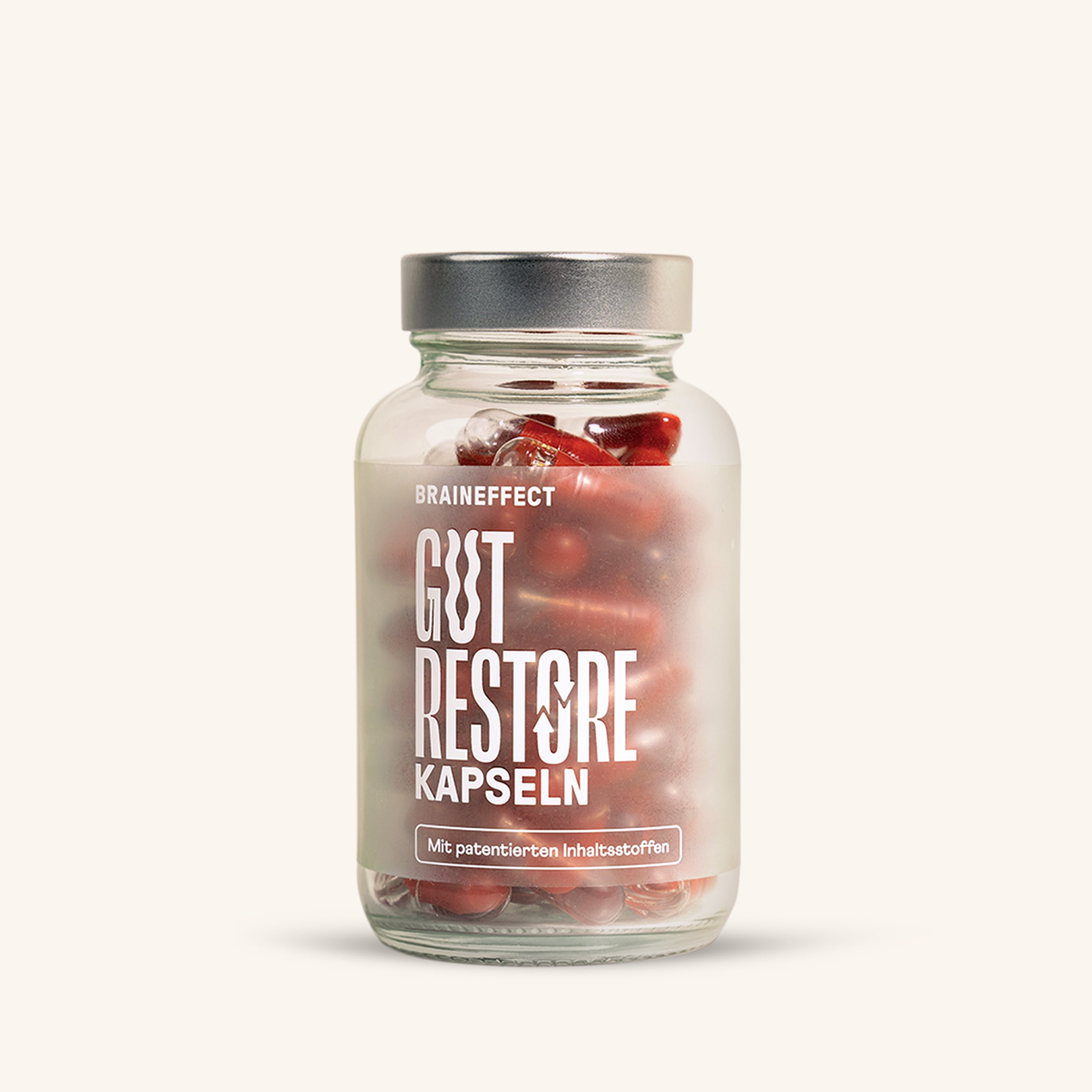Vitamin K doesn't belong to the stars among the vitamins. Yet when it comes to a healthy and balanced diet, vitamin K is essential. Vitamin K is extremely important when it comes to your bones, your cognitive functions and your well-being. In today's blog post you will learn everything about Vitamin K, its function and why it's so good for you - especially in combination with Vitamin D.
Strong bones and a strong brain!
Vitamin K is a fat-soluble vitamin, whose main function is the activation of various proteins. This means that these proteins, such as bone proteins, are in an inactive form until K vitamins join and activate them. There are three types in this substance group; The most important K vitamin is probably K2, which is the active form and has most of the restorative capabilities as described below. It is found mainly in animal liver, fermented foods and butter. Vitamin K2 initially arrives in your liver, but is then quickly passed into different areas of your body in order to fulfill various functions there. Most studies focus on Vitamin K2, which actively supports you and your cells from your bone density to your memory.
This was also a finding of a Université de Montréal study, which mainly concerned the relationship of the nutrient and the brain.¹ The researchers found that Vitamin K not only serves an important function for blood clotting, but also for the nervous system and the brain. It is necessary for the synthesis of so-called sphingolipids. These fats are found in high concentrations in the cell membranes of the brain. The latest study from the Université de Montréal has also dealt with the relationship between Vitamin K and oxidative stress.² The anti-inflammatory power of the group of substances offers protection against the effects of oxidative stress. Thus, the vitamin is a kind of natural antioxidant and protects your brain.
Vitamin K2 and Vitamin D
Vitamin K2 is especially interesting in combination with another vitamin, namely Vitamin D. In conjunction with the sun vitamin, this vitamin optimally integrates the strength of calcium in your body, thus strengthening bones, teeth and muscles. The balance of the two vitamins also ensures that the calcium is not stored in your vessels, and protects them against calcification. Without Vitamin K2, your body's calcium use is disrupted.
The 3 most important strengths of Vitamin K
1. A strong brain needs many different substances and chemicals to work properly. Vitamin K is not only one of these because it's part of the structure of cell membranes. In addition to its function in the construction of cell membranes, the fats formed thereby are also of great importance for further cellular processes in the brain. For example, they're important for communication between cells, and thus for stimulus and the transmission of information.
2. A high resistance to damage caused by inflammation and oxidative stress is the second strength of Vitamin K. A meta-study by Tokyo Medical University found that this particular component has an anti-inflammatory effect.³ The component menaquinone-4 (MK-4) has this particular protective function, but is also the most perishable component with a half-life period of only about 1 hour in the body. Therefore, it is important to regularly select foods high in vitamin K.
3. Optimal calcium utilization is the basis for strong bones and muscles. Next to Vitamin D, Vitamin K2 is the main ingredient and enables calcium processing in your body. Thus you protect your blood vessels from calcification and protect yourself against diseases such as heart failure. A strong cardiovascular system is the result!
Vitamin K2 - in these foods
The problem with the K2 vitamin is in people's food preferences, which have changed a lot over time. Fermented foods, especially, such as sauerkraut and offal, like liver, contain valuable nutrients. But because people's diets have changed, most people will not eat these things, or very little of them. Above all, they don't do so regularly, and therein lies a further difficulty. The K2 vitamins have a pretty short half-life period in the body. Even when it comes to fat-soluble nutrients that are more likely to be deposited in the body, only small amounts of nutrients are deposited, and the stock is quickly exhausted. The German Nutrition Society recommends at least 65 micrograms for women and 80 micrograms for men daily. Projected on your daily food intake this would mean, for example:
- 25g Brussels sprouts
- 50 g veal liver
- 3 eggs
- 220 g cottage cheese
- 400 g mushrooms
Excellent options, especially when you consider the multiple strengths of K2 vitamins! When consuming these foods, you should make sure to eat them in combination with high-quality fats and oils. Since the K2 vitamins themselves are also fat-soluble nutrients, it is easier to be absorbed in the body with other fats. By the way, green vegetables such as kale, broccoli, spinach or parsley are very rich in vitamin K1.
Studies
1. https://www.ncbi.nlm.nih.gov/pubmed/22419547
2. https://www.ncbi.nlm.nih.gov/pubmed/24108469
3. https://www.ncbi.nlm.nih.gov/pmc/articles/PMC3648721/
{{widget type="egproducts/list_featured" template="elegento/products/listslider.phtml"}}















